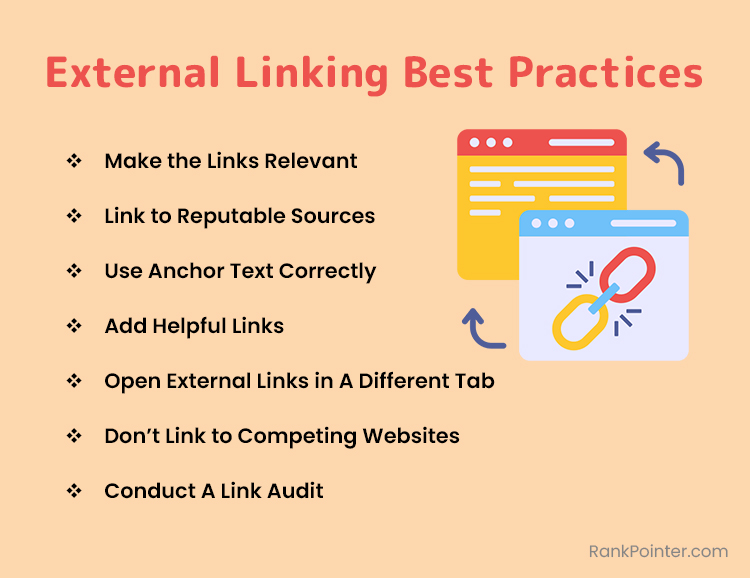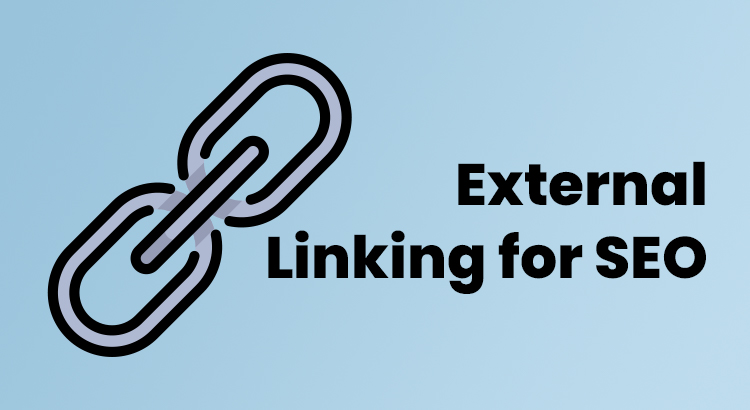Google prioritizes various factors when determining search engine result page rankings. As SEO heavily relies on acquiring quality inbound and outbound links, understanding how to leverage these links is important. This article explores what an external link in SEO is, its significance, and unveils seven best practices. By the end, you’ll learn how external linking can elevate your content’s visibility on SERPs.
What Is an External Link in SEO?
An external link, also referred to as an outbound link, is a hyperlink on a webpage that directs users to a different domain. These links serve as pathways between related content across the web, contributing to the interconnected nature of the internet.
From an SEO perspective, external links signal to search engines the relevance and authority of a website, influencing its ranking on search engine results pages.
Benefits of External Linking
External linking offers many advantages for SEO and website optimization:
1. Improved Credibility
By incorporating trustworthy and relevant external links into content, websites can enhance their credibility and authority.
Just as citations validate the authenticity of research in academic papers, external links signal to users and search engines alike that the content is well-researched and backed by reputable sources.
2. Enhanced SEO Performance
External links serve as endorsements from other websites, signaling to search engines the quality and relevance of a site’s content.
High-quality external links from authoritative sources can positively impact a website’s SEO performance, contributing to higher rankings on SERPs.
3. Facilitated Connections
External linking fosters networking and relationship-building within the digital ecosystem. Websites may reciprocate external links, creating a web of connections that amplify visibility and referral traffic.
Engaging in strategic external linking enables websites to tap into new audiences and niche communities, expanding their reach and influence.
4. Enriched User Experience
By directing users to supplementary information and resources, external links enrich the browsing experience and add value to the content.
Access to diverse perspectives and in-depth analysis fosters engagement and retention, positioning the website as a valuable source of information within its niche.
External Linking Best Practices for SEO
1. Make the Links Relevant
Ensure that external links complement your content by directing readers to related and valuable resources such as statistics, infographics, or videos.
Relevance enhances user experience and signals to search engines the coherence of your content, potentially leading to higher SERP rankings.
2. Link to Reputable Sources
Prioritize linking to authoritative and trustworthy websites to maintain reader trust and credibility.
Avoid linking to sites with clickbait content or unprofessional material, as this could negatively impact both user perception and search engine rankings.
3. Use Anchor Text Correctly
Optimize anchor text by incorporating descriptive keywords or phrases that accurately reflect the content of the linked page.
This practice not only enhances accessibility for users but also provides valuable context for search engine crawlers, contributing to improved SEO performance.
4. Add Helpful Links
Strike a balance between providing informative external links and avoiding link overload.
Focus on enhancing the reader experience rather than solely catering to SEO objectives, as excessive linking may alienate readers and diminish content quality.
5. Open External Links in A Different Tab
Optimize user experience by configuring external links to open in a new tab.
This allows visitors to retain control over their browsing experience while seamlessly accessing external resources, ultimately fostering a positive perception of your website.
6. Don’t Link to Competing Websites
Avoid linking to websites that directly compete for keywords or target the same audience.
Instead, prioritize linking to complementary content that adds value to your own, thereby enriching the user experience and mitigating potential conflicts of interest.
7. Conduct A Link Audit
Regularly review and update your content to identify and rectify any broken or outdated external links.
This practice demonstrates a commitment to maintaining content integrity and enhances user trust by ensuring a seamless browsing experience.

Closing Thoughts on External Link in SEO
An external link is a hyperlink on a webpage that directs users to another website. Website owners can utilize the best practices for external link in SEO provided here to enhance their content’s credibility, relevance, and visibility on search engine result pages.


